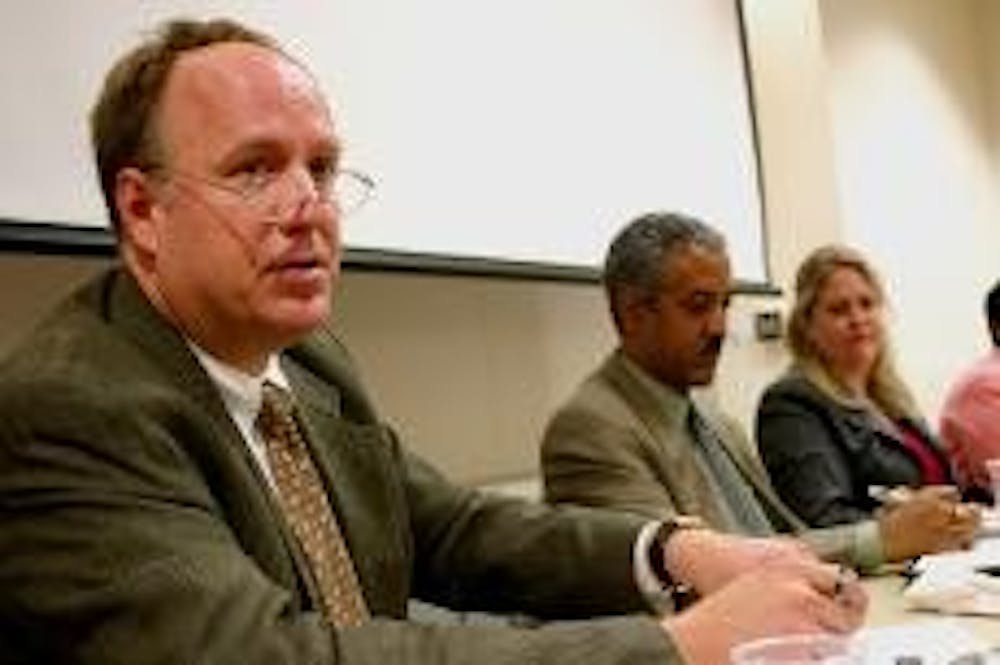International aid is hard to come by for people who are relocated within their own country, according to panelists at a discussion about refugees and internally displaced persons Thursday in Mary Graydon Center.
Since most internally displaced persons are displaced because of internal conflict, they often flee to other dangerous areas where it is hard for international organizations to reach them, said Kanya Sanders, an immigration lawyer. In addition, internally displaced persons are often from the group the government is fighting, which makes the government unwilling to help, she said.
In Sri Lanka, the government routinely arrests young people in camps on suspicion of being rebels. Meanwhile, they are housed in large rooms with no privacy and no access to school, work or hospitals for periods of 14 to 15 years, Sanders said. These conditions lead to a high suicide rate among women and a high rate of alcoholism and abuse, she said.
Because of situations like this, "it is an international responsibility to protect refugees," said Merrill Smith, director of international planning and analysis for the U.S. Committee for Refugees and Immigrants.
Another less-talked about problem with refugee camps is that they don't provide access to people with disabilities, said Anne Hayes, a fellow at the U.S. Agency for International Development. The number of people with disabilities, including sensory, physical, mental and social, in developing countries can be up to 80 percent, Hayes said.
Building accessible shelters and including devices for people with disabilities would not cost more and would benefit those without disabilities as well, she said.
"[We need to] take care of the most vulnerable," Hayes said.
For refugees entering the United States, it is often hard to obtain Social Security cards and other important papers because of the bureaucracy, which requires them to have passports from the country they are fleeing, said Seyoum Berhe, director of the Arlington Diocese Migration and Refugee Services.
It is challenging for refugee families in the United States to stay together because traditional gender roles are reversed and children often become guides to their parents since they learn English faster, Berhe said. It is hard for refugees to find jobs, even if they are highly skilled workers, he said.
"We have to be careful we do not create an under class," Berhe said.
After the panel of professionals spoke, students presented their papers on topics they deemed most urgent regarding refugees and internally displaced persons from their "Introduction to International Relations Research" class. Students presented on the plight of indigenous people in Mexico, the United Nations' role in aiding internally displaced persons in Colombia, discrimination in how aid was administered in Aceh and Palestinians' right to refugee status, among other topics.





